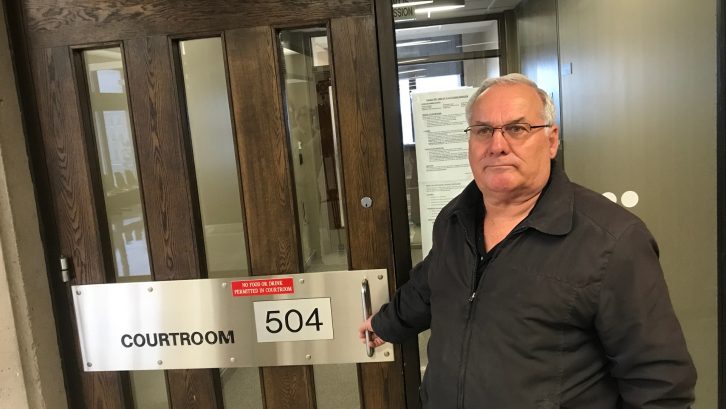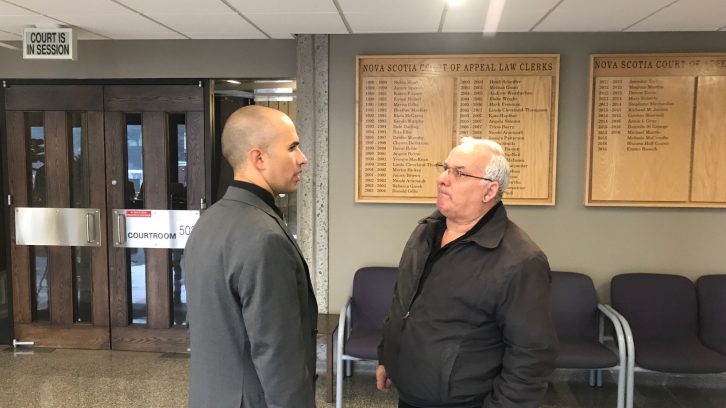Courts
‘GRABHER’ licence plate case back in court
Court asked to strike report linking “GRABHER” to Donald Trump

caption
Lorne Grabher attends N.S. Supreme Court in 2018.
caption
Lorne Grabher was in court in Halifax Thursday as his case continues.Lorne Grabher’s fight to keep his personalized licence plate continued in Nova Scotia Supreme Court on Thursday.
He is fighting a decision by the Nova Scotia Registry of Motor Vehicles to revoke the plate bearing his last name. The plate was denied renewal in 2016, after having been approved for 26 consecutive years, when someone filed a complaint about the social implications of “GRABHER,” in that it directly insinuates rape culture.
“I’m totally amazed at how much power one person has,” said Grabher before court.
On Thursday, Justice Pierre Muise heard two motions related to filed affidavits, in order to determine if they would be admissible as evidence at a Sept. 5 trial.
Crown lawyer Alison Campbell asked to strike several sections from Grabher’s affidavit including those that mention his wife’s company, Grabher Consulting, and his son having a ‘GRABHER’ licence plate in Alberta.
The second motion, proposed by Grabher’s lawyer Jay Cameron, was to have the Crown’s report by professor Carrie Rentschler dropped from the case. Rentschler has a doctorate in communications and experience in gender studies, and she currently teaches at McGill University.
Cameron said that Rentschler’s report “opines” that the ‘GRABHER’ plate is directly associated with rape culture, it endangers women, promotes sexual violence against women and endangers the community at large.
The report surmises that everyone who sees ‘GRABHER’ will make a direct correlation to Donald Trump and his reference to grabbing a woman’s genitals.
Cameron, who works for the Justice Centre for Constitutional Freedoms, argued the report falls short of being legally acceptable as expert testimony.
“It’s a serious thing to have an expert come in and give opinion evidence in a case,” he said after court. “There is a tremendous amount of authority that is given to that testimony and it has a significant impact on the person who is litigating an issue.”
In court, Cameron said there was zero evidence the licence plate endangered the community, zero evidence it being revoked makes the community one bit safer. He added there wasn’t a single example of the plate leading to assault and zero evidence it encourages rape.
Muise said he would need some time to decide if Rentschler’s report is admissible, but will rule on Grabher’s affidavit on Friday.


